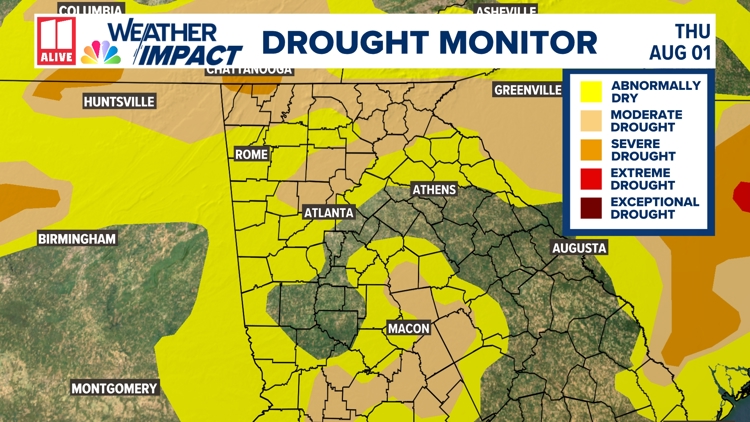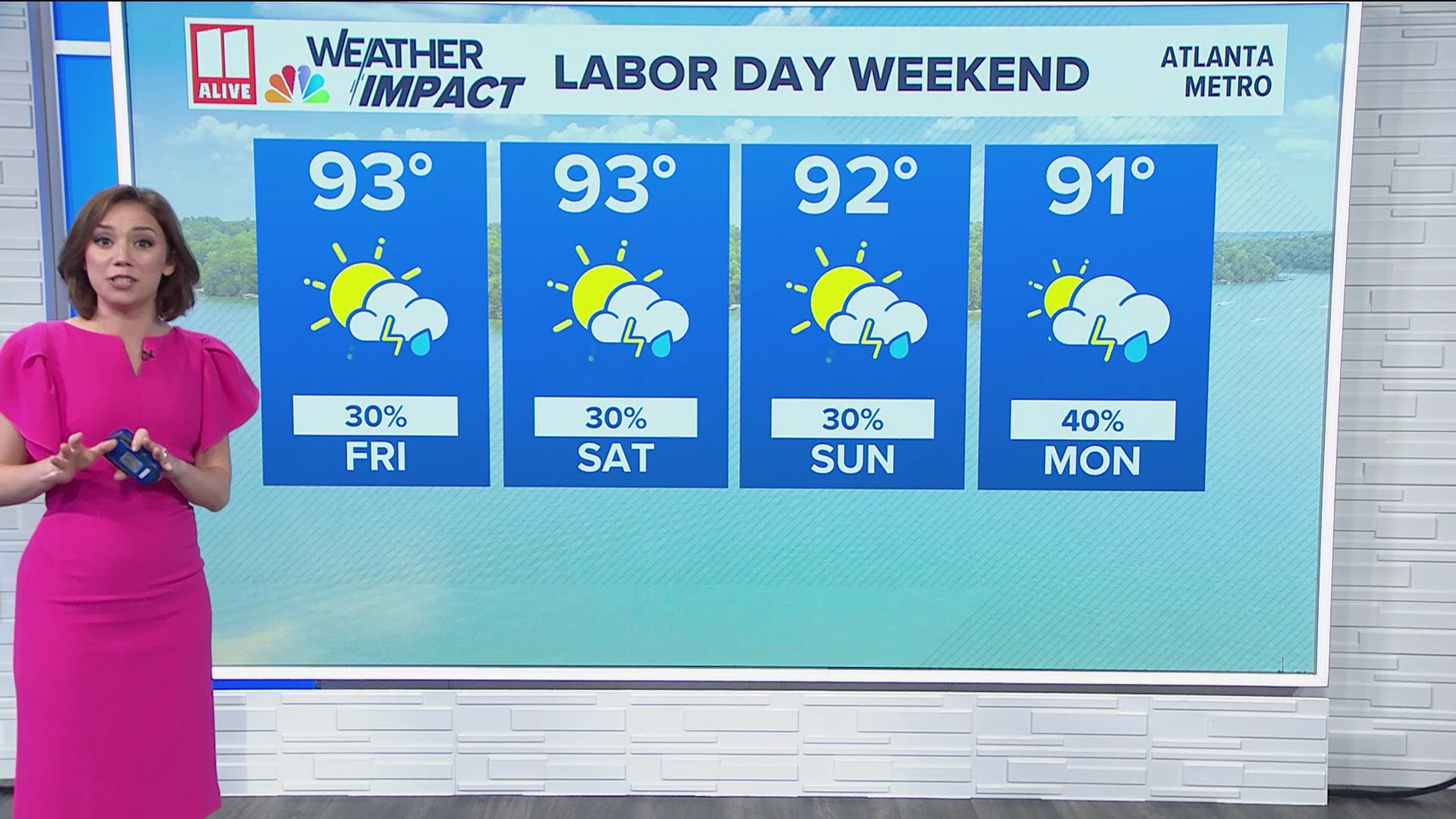ATLANTA — Daily rainfall has helped to alleviate drought conditions in Georgia.
While much of the state is still "abnormally dry" or in "moderate" drought, only a small sliver of "severe" drought exists in far NW Georgia - an improvement from last week's drought monitor.

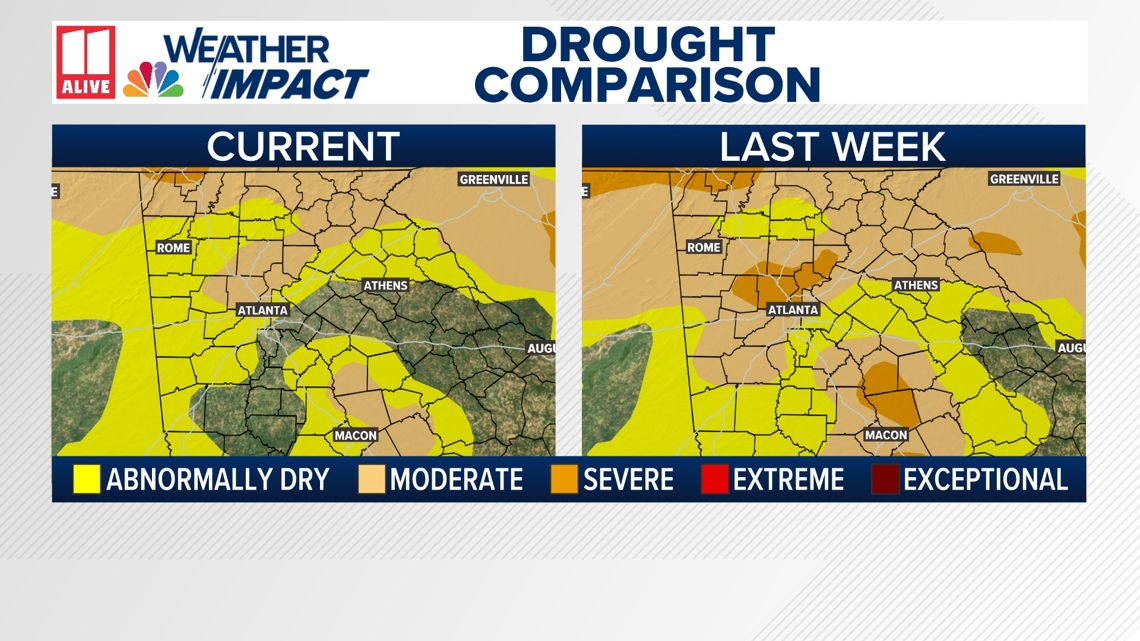
Hartsfield-Jackson Atlanta International Airport received over 14" of rain this month, making it the fourth wettest July on record. It is also the wettest July in which Atlanta did not feel the impacts of a landfalling tropical cyclone.
Hurricane Four made landfall along the Florida panhandle in 1887. Tropical Storm Alberto dropped more than 2 feet of rain across portions of Georgia in 1994. Hurricane Cindy and Hurricane Dennis brought heavy rain in 2005.

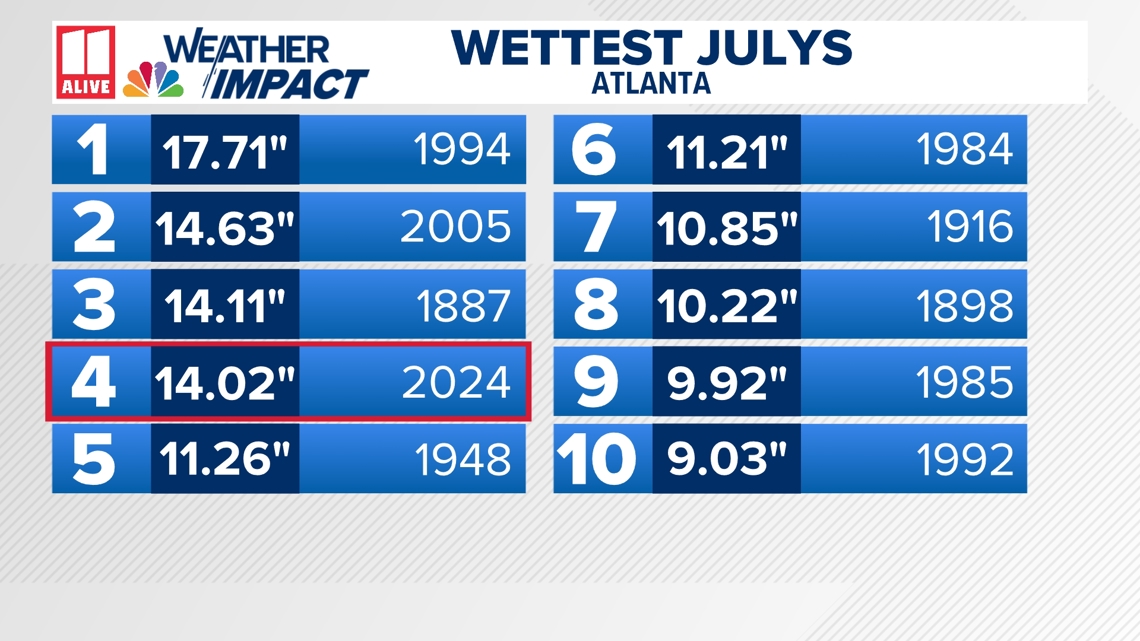
This rain was much-needed after an abnormally dry, hot June.

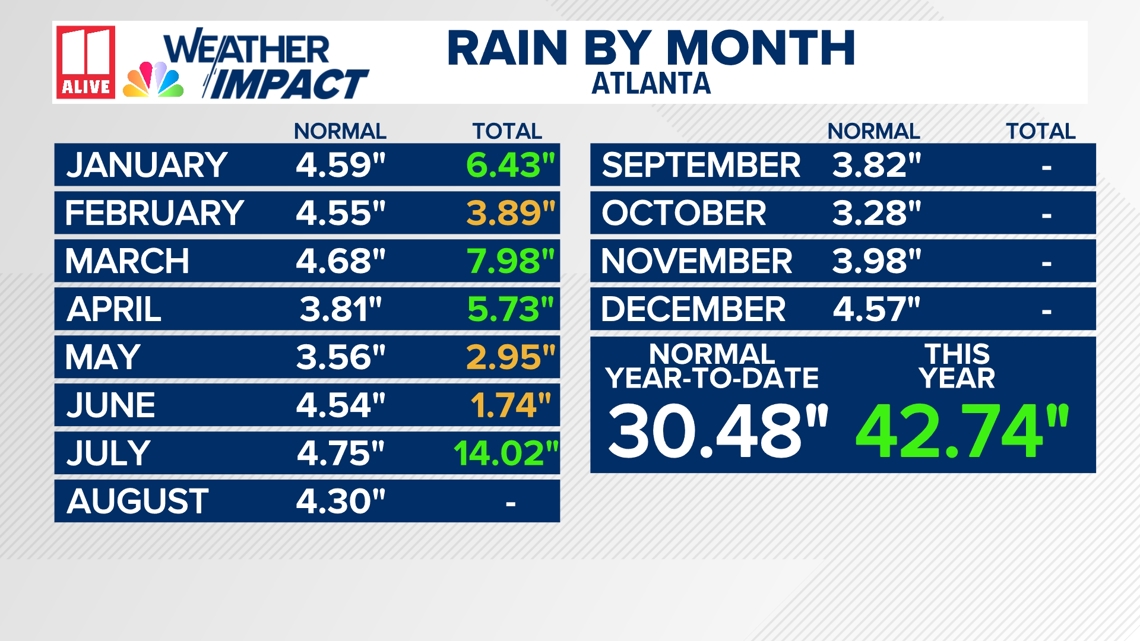
On May 28, Georgia was completely drought-free. Following a month of little rain, 96% of the state was under at least "abnormally dry" conditions by July 2.
Now, only 43% of the state is experiencing some form of drought.

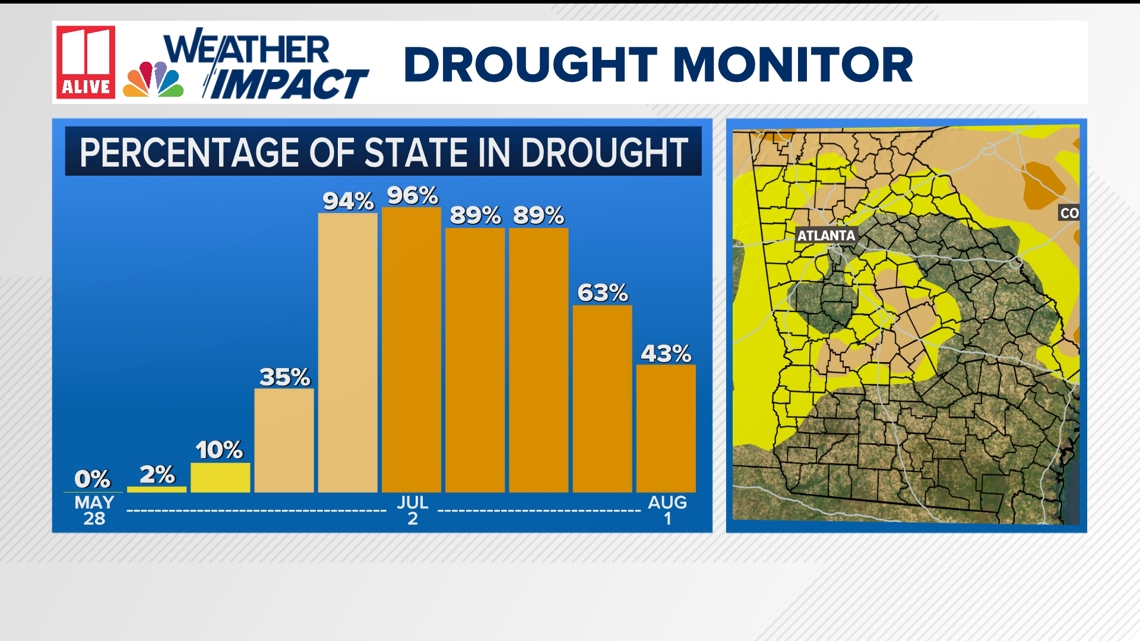
Pam Knox, an Agricultural Climatologist with the University of Georgia, says the reduction in drought was expected, considering the wet month we've had.
"It is not surprising to me that we're seeing a reduction in the drought. The drought monitor is very conservative. They don't usually like to change more than one category a week because they're looking at a longer-term picture."
Knox believes further improvements will be seen in the next week, "Considering how much rain we've gotten this week, It's likely that it will probably be reduced further."
From Drought To Floods: Impact on Georgia's Agriculture Industry
But although we're quickly digging out of the drought, the impact on the state's agriculture industry went from one end of the spectrum to the other in just one month, as Dr. Knox elaborates.
One month ago, the agriculture industry was dealing with one set of issues, "We had this combination of no rain and hot temperatures, which, of course, go together in a drought. And that really set a lot of the crops back, especially things like dryland corn, because for dryland corn, when they pollinate, the silk has to be sticky enough for the pollen to stick to it. And when it's really dry, the pollen won't stick. And so they can lose their crop in a week or so if it's really dry, and there are some crops, I think, that are just really too far gone from that drought in June."
Fast-forward to the start of August, and farmers are combatting a new set of problems. "Many places in the state have just gotten bombed with rain. That has caused problems because now they can't get into the fields again because you can't really drive when it's that muddy. And so they're behind on putting out chemicals like fungicides that they would usually need to protect the plants."
In particular, Knox is concerned about the peanut harvest this year, "We're seeing a massive growth in things like white mold in peanuts and what that does is it makes the leaves not very good at doing photosynthesis. So, the peanuts don't fill up the pods as quickly. And you don't get as many of them. And so that affects the yields down the way."
Cotton farmers in southern Georgia have been flooded with their own host of issues. Many fields have been flooded from recent rains. Luckily, Knox elaborated that the blueberry and peach crops were far enough along that they weren't too heavily impacted by the heavy rains. She said peach farms had some problems with mold getting on peaches, but much of the harvest season was already complete.
But looking ahead, Knox believes we need to watch the tropics closely as we get into the peak of hurricane season.
"The ground can only take so much rain, and anything else is either going to puddle up or run off and cause problems with erosion, nutrients, washing off the soils and streams, of course, because all that water's got to go somewhere. And so if we get heavy rain from one of these tropical events, it doesn't even have to be a named storm. We can have issues."


